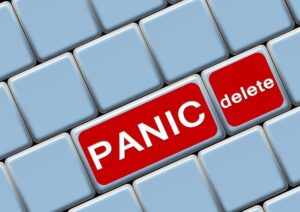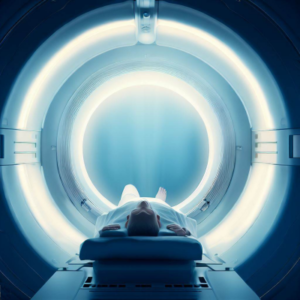Nighttime panic attacks can be a terrifying experience for those who suffer from them. These attacks can occur suddenly and without warning, leaving the person feeling helpless and alone.
Understanding the science behind nighttime panic attacks is crucial in order to manage and overcome them. In this article, we will explore the concept of the Witching Hour, the science behind nighttime panic attacks, how to recognize symptoms, common causes, management techniques, the role of sleep hygiene, and seeking professional help.
What is the Witching Hour?
 The Witching Hour is a term used to describe the time between midnight and 3 am when supernatural events are believed to occur. This term has been used throughout history in various cultures and religions. In some cultures, it is believed that witches and demons are most active during this time. In others, it is believed that spirits of the dead come back to visit their loved ones.
The Witching Hour is a term used to describe the time between midnight and 3 am when supernatural events are believed to occur. This term has been used throughout history in various cultures and religions. In some cultures, it is believed that witches and demons are most active during this time. In others, it is believed that spirits of the dead come back to visit their loved ones.
While there is no scientific evidence to support these beliefs, the term Witching Hour has been adopted by some to describe a time of heightened anxiety and fear. For those who suffer from nighttime panic attacks, this time can be particularly difficult.
The Science Behind Nighttime Panic Attacks
Nighttime panic attacks are a result of the fight or flight response being triggered during sleep. The fight or flight response is a natural response to danger that prepares the body to either fight or flee. When this response is triggered during sleep, it can cause a person to wake up in a state of panic.
Adrenaline and cortisol are two hormones that are released during the fight or flight response. Adrenaline increases heart rate and blood pressure while cortisol increases blood sugar levels. These hormones can cause physical symptoms such as sweating, trembling, and shortness of breath.
Sleep plays an important role in managing anxiety levels. Lack of sleep can increase anxiety levels while getting enough sleep can help reduce anxiety levels.
How to Recognize Symptoms of a Panic Attack
Physical symptoms of a panic attack can include sweating, trembling, shortness of breath, chest pain, and heart palpitations. Psychological symptoms can include fear of losing control, fear of dying, and feeling detached from reality.
It is important to note that panic attacks and anxiety attacks are not the same thing. Anxiety attacks are a result of prolonged stress and can cause similar physical symptoms as panic attacks. However, anxiety attacks do not come on suddenly and without warning like panic attacks do.
Common Causes of Nighttime Panic Attacks
Stress and anxiety are the most common causes of nighttime panic attacks. Medical conditions such as sleep apnea and restless leg syndrome can also trigger panic attacks during sleep. Certain medications such as antidepressants and stimulants can also increase the risk of nighttime panic attacks.
How to Manage Nighttime Panic Attacks
Breathing exercises such as deep breathing and diaphragmatic breathing can help reduce the physical symptoms of a panic attack. Mindfulness techniques such as meditation and visualization can help calm the mind and reduce anxiety levels. Progressive muscle relaxation involves tensing and relaxing different muscle groups in the body to reduce tension and promote relaxation.
The Role of Sleep Hygiene in Reducing Panic Attacks
Sleep hygiene refers to habits and practices that promote healthy sleep patterns. A consistent sleep schedule, creating a relaxing bedtime routine, and avoiding stimulants before bed can all help reduce the risk of nighttime panic attacks.
Seeking Professional Help for Nighttime Panic Attacks
If nighttime panic attacks are interfering with daily life, it may be time to seek professional help. Cognitive-behavioral therapy (CBT) is a type of therapy that has been shown to be effective in treating panic disorder. Medications such as antidepressants and benzodiazepines may also be prescribed by a qualified mental health professional.
It is important to find a qualified mental health professional who specializes in treating panic disorder. Seeking help is a sign of strength and can lead to a better quality of life.
Night time panic attacks can be a frightening experience, but understanding the science behind them can help manage and overcome them. The Witching Hour may be a term used to describe a time of heightened anxiety, but with the right tools and techniques, nighttime panic attacks can be managed. If nighttime panic attacks are interfering with daily life, seeking professional help is encouraged. Remember, seeking help is a sign of strength and can lead to a better quality of life.



